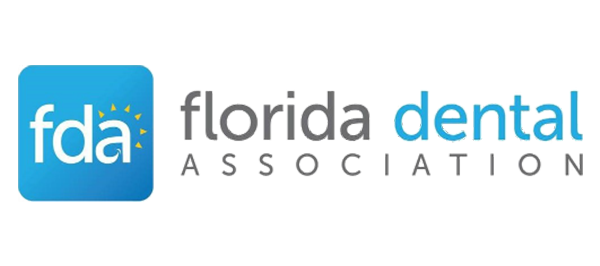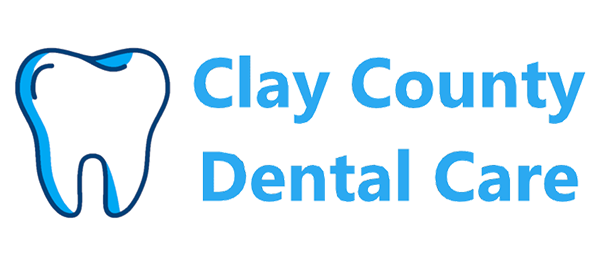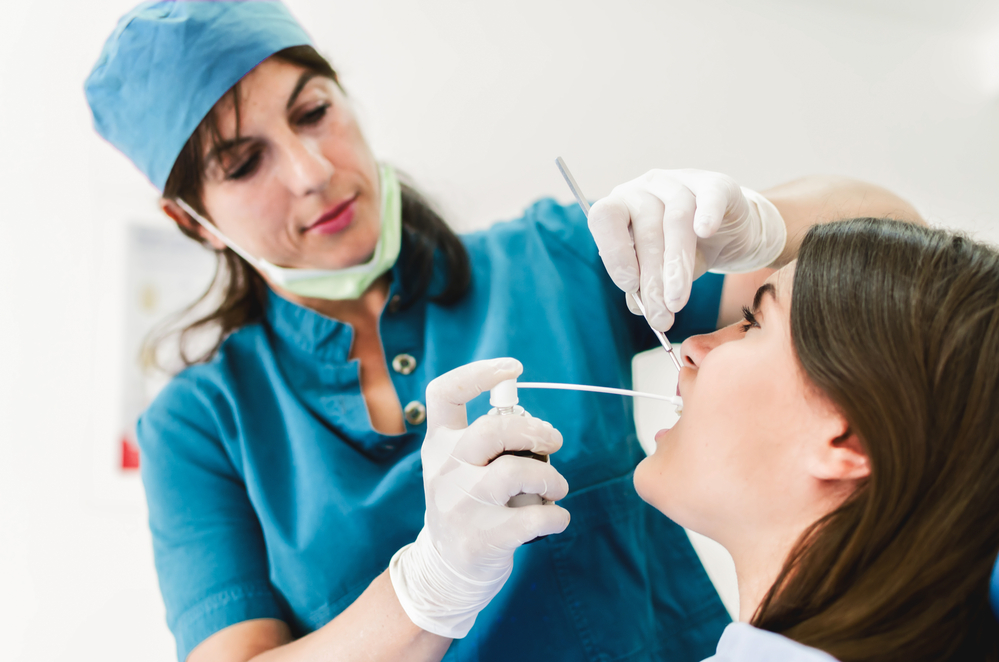Why Is My Mouth Numb?
In most cases, a numb mouth is easily treatable. However, to do so successfully, you’ll need to know what caused it in the first place.
Sometimes, your dentist may need to numb your mouth with anesthesia for a root canal, cavity filling, or other dental procedure to ease the pain that may occur. It is not normal, however, to experience chronic numbness in the mouth without anesthesia or after anesthesia ought to have worn off. If you have started to notice a numbing or tingling sensation in your mouth, you could have an allergy or a medical condition.
Common Causes of a Numb Mouth
A numb mouth may simply be a reaction to something you ate or it could be a symptom of a larger health problem.
Allergic Reaction
A sudden numbness in the mouth after eating or drinking something is called anaphylaxis. This kind of allergic reaction can cause numbness in the mouth, but also a tingling sensation in the lips. In some cases, there may be facial swelling that accompanies the numbing sensation. Common foods that can cause an allergic reaction include pollen, nuts, celery, fennel, or shellfish.
Vitamin Deficiency
If you don’t have a very nutritious diet, the vitamin deficiency may cause uncomfortable symptoms like a numb mouth over time. B vitamins in particular are crucial for the health of nerve and blood cells. A lack of vitamin B12 impacts the formation of red blood cells and can lead to numbing or tingling sensations in the body. To be sure you are getting enough vitamin B12, make sure to eat foods such as meat, fish, and dairy products. If you are a vegan or vegetarian, supplementation may be necessary to keep your B vitamin supply at a healthy level.
Medication Side-Effects
Some medications and medical treatments can lead to a numbing feeling in your mouth due to the effect they have on the nervous system. The most common treatments that can lead to a numb mouth include chemotherapy, bisphosphonate therapy, radiation, or other nerve-blocking medications such as gabapentin.
Oral Cancer
Cancer in the mouth and throat can affect chewing or swallowing sensations in the jaw. This is the most common head and neck cancer and can damage blood vessels or nerves within the oral cavity. Other symptoms of oral cancer besides a numb mouth are mouth sores, a lump in the neck, difficulty swallowing, or ear pain. If a dentist suspects you may have oral cancer, they will refer you to a medical specialist for testing and diagnosis.
Burning Mouth Syndrome
Burning mouth syndrome involves an ongoing burning sensation or numbness in the mouth without any particular cause. Some people with burning mouth syndrome may also experience a loss of taste or increased thirst.
Stroke
A stroke is a medical emergency. It occurs when the flow of blood to the brain is interrupted and can result in slurred speech, slower thinking, and numbness in the mouth. If you or someone you know is experiencing oral numbness accompanied by other neurological symptoms, seek immediate medical attention.
Injury
A blow to the face area can lead to inflammation and numbness in the mouth. This is especially true if someone is hit in the jaw or falls and injures their mouth and teeth. If you have experienced a mouth injury, a medical professional can prescribe medication to ease the pain and speed up the healing process. Your dentist can treat any damage to your teeth.
How To Treat a Numb Mouth
How you treat a numb mouth will depend on the cause and severity of your symptoms. If you receive a cancer diagnosis, for instance, your treatment will be much more extensive than someone experiencing a mild allergic reaction.
Antiseptic Mouthwash
Gargling an antiseptic mouthwash can prevent excess bacterial growth. Keeping your mouth clean reduces the risk of inflammation, infection, and a numbing sensation around the teeth and gums. It is recommended to rinse your mouth once or twice a day in addition to flossing and brushing for optimum oral health.
Antihistamines
The best way to treat an allergic reaction that causes numbness is an antihistamine. Antihistamines work by blocking the histamine receptors in the brain and reducing symptoms of an allergic reaction.
Salt-Water Solution
A salt-water solution works similarly to an antiseptic mouthwash and has antibacterial healing properties. Salt water can also help ease pain in the mouth and ease the inflammation that is causing the numbness.
Oral Gels and Creams
If you’ve already tried some at-home care, the next step may be to try an oral gel or cream. These solutions can relieve mouth pain or irritation in the mouth. Often, once the irritation in the mouth subsides, normal nerve sensations in your mouth will return.
Talk to Your Dentist
If you’re concerned about the numbness in your mouth, talk to your dentist. They can help determine the cause of the numbness and help guide you toward an appropriate treatment. They can also recommend at-home treatments that might work for you if other options haven’t.
Our Doctors
Meet our Family of Dentists
Dr. Standish has been serving Clay County patients at Eagle Harbor Dental for over 40 years. His daughters Dr. Kelly & Dr. Erin joined the practice and they’ve been creating beautiful smiles as a family ever since. With extensive educations and memberships, our dentists are the best that Fleming Island has to offer.





We've Got You Covered
Insurance We Accept
Don't see your insurance listed? No worries! If you have a PPO plan, you can use it here.
Contact us
to verify your coverage
Ready to get started?
Book your appointment
Give us a call
(904) 269-6558
or send us a message using the form below










